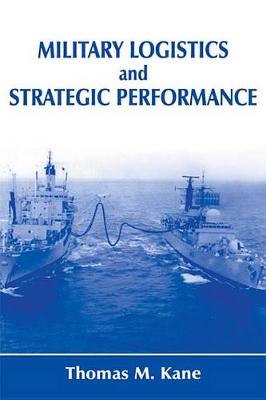Strategy and History
1 total work
This work argues that logistics in warfare is crucial to achieving strategic success. The author identifies logistical capabilities as an arbiter of opportunity, which plays a critical role in determining which side will hold the strategic iniative in war. Armies which have secured reliable resources of supply have a great advantage in determining the time and manner in which engagements take place. Often, they can fight in ways their opponents cannot. The author illustrates this point with case studies of British logistics during the Burma campaign in the World War II, American logistical innovations during the Pacific War, Communist supply methods during the American phase of the Vietnam War and the competing logistical systems of both NATO and Warsaw Pact conventional forces during the Cold War.
